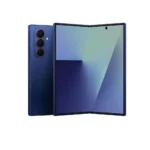In the race to develop the next generation of chips crucial for smartphones, data centers, and artificial intelligence, semiconductor powerhouses like TSMC, Samsung Electronics, and Intel are intensifying their competition, according to a report by The Financial Times.
Insiders revealed that TSMC has showcased the test results of its 2-nanometer prototype, codenamed “N2,” to major clients like Apple and Nvidia. However, Samsung has not only presented its latest 2-nanometer prototype but has also offered competitive pricing to attract customers, garnering favor from significant brands like Nvidia.
James Lim, an analyst at U.S. hedge fund Dalton Investments, commented on Samsung’s ambition, stating, “Samsung regards 2nm as a game-changing process, but people still have doubts about whether it can outperform TSMC in process upgrades.”
TSMC has affirmed its commitment to mass-produce N2 chips by 2025, with a planned launch sequence prioritizing mobile versions, followed by PC versions, and high-performance computing chips designed for increased power loads.
The company asserts that its N2 technology development is progressing smoothly and will set an industry benchmark for semiconductor technology in terms of density and energy efficiency upon mass production.
While Samsung and Intel aim to attract customers looking to reduce dependence on TSMC for various reasons, including commercial considerations and geopolitical concerns related to China’s military threat to Taiwan, industry experts remain skeptical. Leslie Wu, CEO of consulting firm RHCC, notes that major customers seeking 2-nanometer technology are exploring diversification across multiple foundries due to the risks associated with relying solely on TSMC.
However, Mark Li, an Asia semiconductor analyst at research firm Bernstein, raises doubts about the significance of geopolitical factors compared to performance, cost, and reliability in customers’ decision-making processes, emphasizing that TSMC continues to hold a competitive edge in these crucial aspects.



